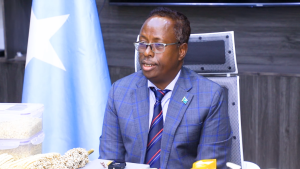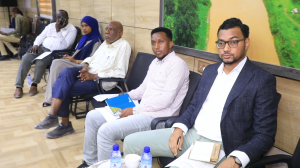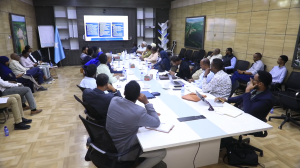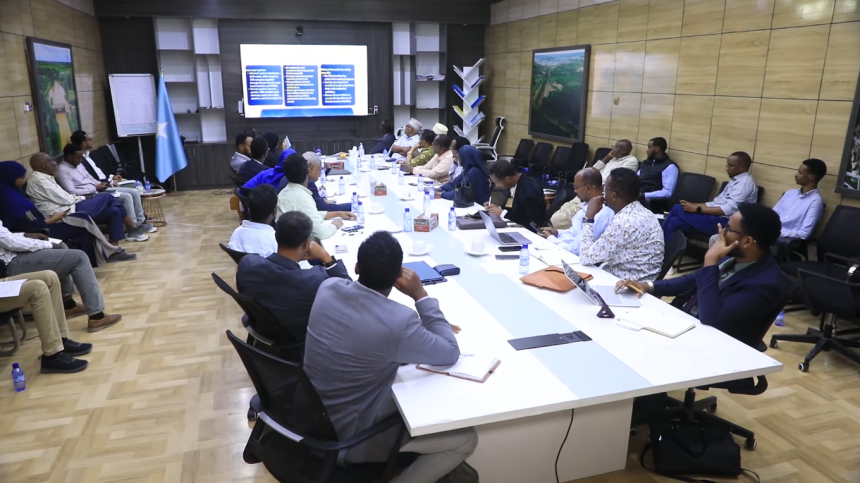Mogadishu, Somalia – The Federal Government of Somalia is embarking on a comprehensive initiative to transform its agricultural landscape, with a strong focus on empowering local farmers and ensuring national food security. This strategic direction was articulated by Minister Mareeye during a recent workshop in Mogadishu, where key stakeholders gathered to deliberate on the future of Somalia’s farming industry. The discussions revealed a candid acknowledgment of prevailing challenges and outlined a robust plan for government intervention and collaborative action.
Minister Mareeye commenced his address by highlighting the significant obstacles currently impeding agricultural growth across Somalia. He pointed to a multifaceted crisis encompassing insufficient support for farmers, the widespread impact of crop diseases, the escalating adverse effects of climate change, and persistent water scarcity. A particularly critical barrier identified was the lack of efficient market access, which has left farmers struggling to competitively sell their produce. The Minister unequivocally stated that these difficulties are not isolated incidents but rather a systemic problem affecting the entire national agricultural sector, necessitating comprehensive solutions.
In response to these pressing issues, the Minister detailed the government’s firm commitment to implementing favorable policies designed to uplift the agricultural community. A pivotal announcement was the pledge to provide tax exemptions for Somali farmers, a measure aimed at alleviating their financial burdens and incentivizing greater investment and productivity within the sector. This strategic move is envisioned as a crucial catalyst to stimulate agricultural output and bolster efforts toward achieving national food security. Minister Mareeye emphasized that these initiatives form the bedrock of the government’s strategy to enhance food production and mitigate hunger throughout the nation.
The workshop served as a vital platform for fostering collaboration among a diverse group of entities essential for agricultural development. Participants included representatives from the Ministry of Agriculture, leading seed companies, various universities, and veteran agricultural experts. The collective objective was to devise innovative strategies to overcome existing challenges and seize opportunities to significantly increase food production within Somalia. Furthermore, the Minister announced the formation of a committee tasked with addressing licensing issues and investigating practices that hinder farmer productivity, demonstrating a proactive approach to dismantling bureaucratic and systemic impediments.
A substantial segment of the discussion was dedicated to the critical issue of market access. Minister Mareeye underscored the intense competition faced by local farmers, even from neighboring regions such as Jubaland. He highlighted a concerning disparity where agricultural products from distant countries like India or Pakistan sometimes possess a ten-fold advantage in market access compared to domestically grown produce. This imbalance is attributed not only to infrastructural deficiencies but also to “man-made” obstacles and the absence of effective systems that would enable domestic agricultural products to thrive. The government is actively investigating individuals or entities deliberately hindering the market access of local products, viewing these actions as directly detrimental to national development.
In a focused approach to agricultural enhancement, the Minister specifically mentioned efforts to improve the cultivation and marketability of essential crops such as millet and sesame. This targeted strategy aims to boost the production of these key staples and cash crops, which are vital for both domestic consumption and potential export.
The Minister’s statements signal a strategic reorientation towards prioritizing domestic agricultural production as a fundamental pillar of Somalia’s economic recovery and long-term stability. By proactively addressing critical issues such as financial burdens through tax relief, resolving market access challenges, and tackling systemic problems through collaborative interventions, the government is committed to empowering farmers and strengthening national food security. This emphasis on investigating and rectifying practices that undermine local agriculture demonstrates a profound commitment to cultivating a more equitable and supportive environment for Somali farmers. The ultimate success of these vital initiatives will depend on sustained implementation and rigorous monitoring to ensure that the promised support translates into tangible and lasting benefits for farming communities and the nation’s overall development.








